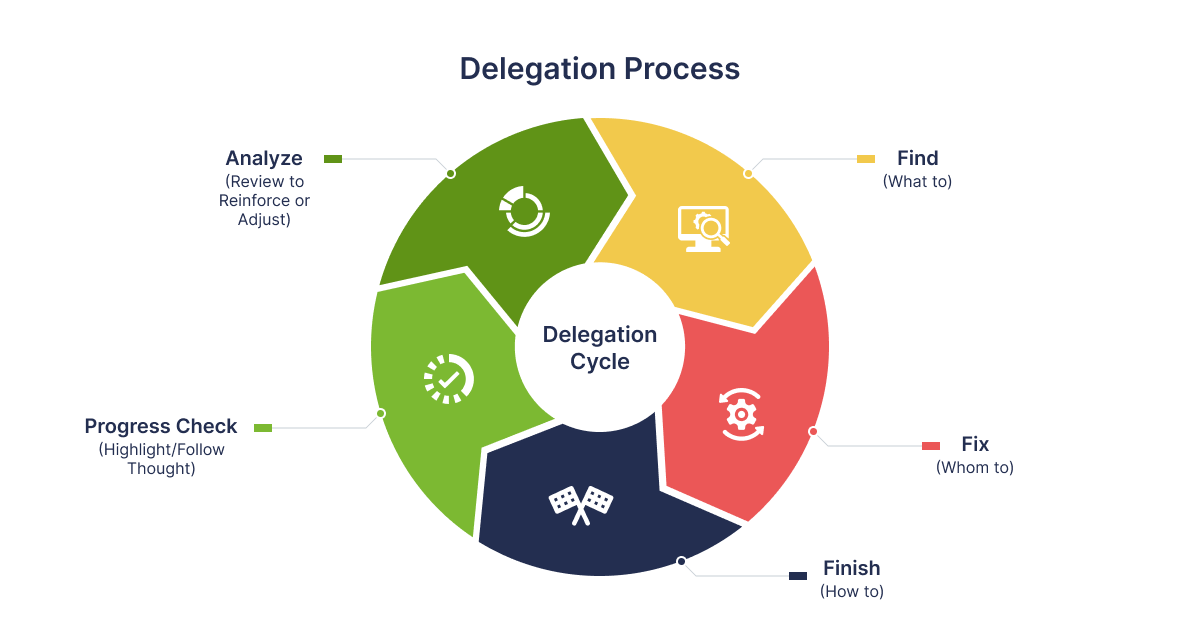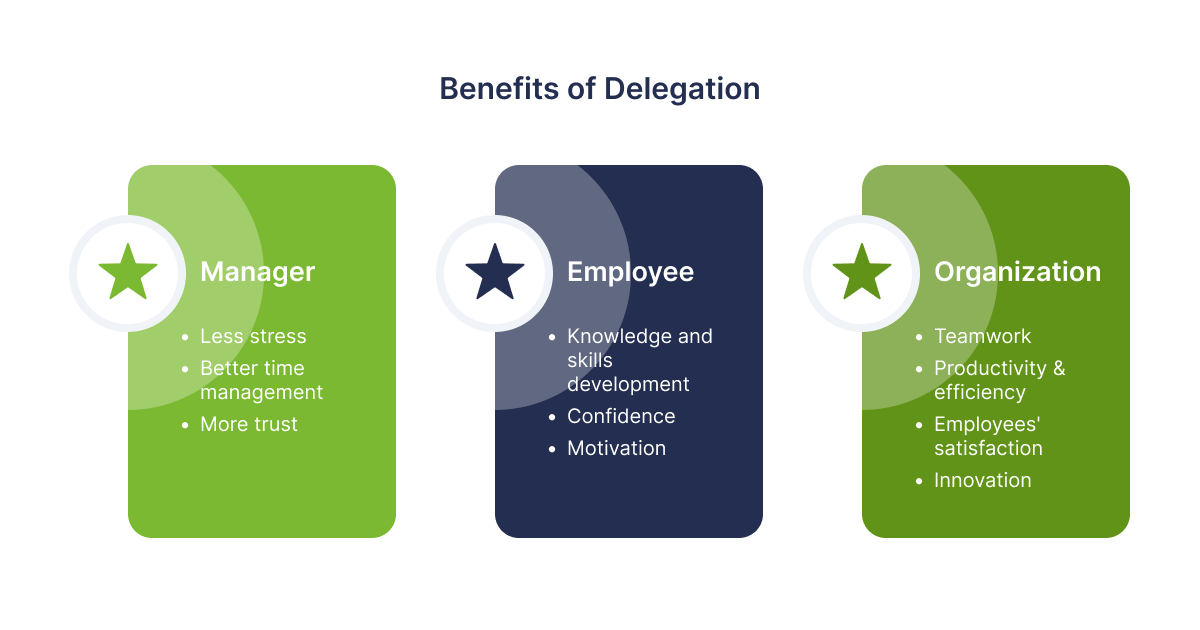Delegation Process: Challenges & Efficient Measures to Deal with Them
The success of the company's work depends on the efficient performance of each team member targeted at accomplishing their tasks, and the right distribution of the duties among the staff. However, it is not so easy to give the workers the possibility to act in the area of a limited range of tasks, and the professionalism of a manager is identified by his/her ability to delegate. Further, we are going to find out why it is so complicated to transfer tasks and how to make the process of delegation efficient.
Signs of ineffective or insufficient delegation
Properly organized managers' work allows them to cope with the usual tasks without overloading. Besides, suppose a manager of the department realizes that the amount of people, meetings, and decisions supposed to make is tremendous and incredibly exhausting. In that case, it's high time to think about delegating.
A department or business that works effectively is a story about a certain autonomy of the team, automation of processes, and therefore the possibility of acting independently without consequences for the results. Therefore, the second point that indicates the need to transfer part of the tasks to subordinates is that employees can do well without the manager's presence for a long time except for a few hours that can be counted on one's fingers.
Managers often refuse to delegate because of the complexity of business processes or a large number of exceptional circumstances. After all, the red line for delegation could have been one's past negative experience of delegating tasks or the fact that the decision-making range is quite narrow. Unfortunately, it is not an exception when managers are just unhappy with their work or believe there is no one to delegate a part of their functions to.

How to improve delegating
Keeping the company alive for a long time, the manager is getting used to playing a role of a leader, no matter how well thought out. As the company grows and gets more complicated, it does not become more viable, and the managers cannot deal with global issues if they spend a huge amount of time saving the situation by themselves. How to change the attitude towards delegation and make it more effective?
- Identify the areas of work you spend the most time on or where the contentious points described in the section above arise.
- The primary resource of a business is its employees. So you have to accumulate talented and dedicated people, encourage them, promote career development, and give them more authority. Ask team members if they would like to be given more tasks; what their busy schedule is; if they want more responsibility, and in what area; how they can make decisions.
- Check tasks delegated to others and do not panic if a mistake was made during execution. Keep teaching and learning about delegation in interaction with subordinates.
- Delegate at least part of the work if you are unable to delegate the entire process.
- If you delegate a task, the employee must be responsible for it. Make sure that the employee has certain authority to perform it.
- Were tasks delegated to other employees completed successfully? If yes, this is also your small victory.
Talk to employees about their new involvement, workload, and area of responsibility in a few weeks or months. Does everything suit them? May they need something to support them? Success in delegating is very much related to efficiency and microclimate in the team, so this issue needs to be worked out.

| Steps to improve delegation | Description |
| Clarification of roles and responsibilities |
Clearly define the role and responsibilities of each worker to avoid confusion and duplication of work.
|
| Regular review and updates |
Regularly review and update the delegation table to keep it current and fresh.
|
| Use clear and concise statements |
Use clear and concise statements so that everyone understands the tasks easily.
|
| Distribute levels of authority |
Clearly define each employee's authority levels and agree on delegation of responsibilities accordingly.
|
| Provide training and support |
Provide training and support to new or struggling team members to help them perform their tasks effectively.
|
| Encourage open communication |
Encourage open communication between team members and encourage them to ask for help or clarification when needed.
|
Treat delegation as an opportunity for the professional growth of your colleagues, do not be afraid of giving them authority, and enjoy new success and effective work.
Read also: BA and QA collaboration approaches
Categories
Share
Need a project estimate?
Drop us a line, and we provide you with a qualified consultation.








